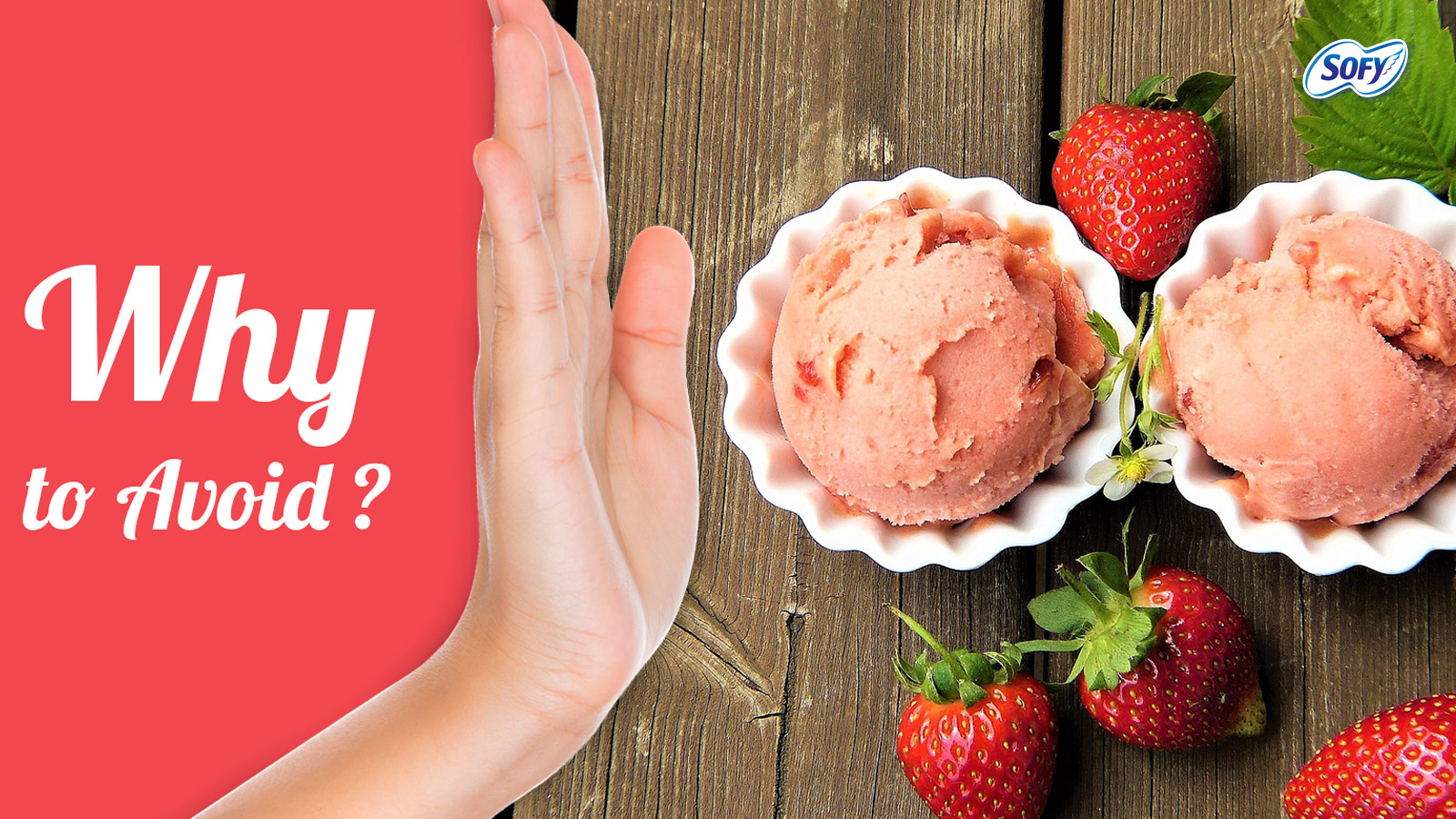A bowl of your favorite strawberry ice cream while watching Netflix may sound like the perfect relief during periods. But many girls are often advised by elders to avoid cold foods and drinks during menstruation.
It is a common notion in India that cold foods and drinks should be avoided during period days. But how true is this advice? And does it really make a difference? Let’s unravel.
Do Cold Foods and Drinks Worsen Menstrual Cramps?
Many girls report that consuming cold foods or drinks—like ice cream, cold water, or soft drinks—can make cramps worse.
While there isn’t enough scientific evidence to prove a direct link, one reason could be prostaglandins. These natural chemicals in the body cause uterine contractions to shed the endometrium during periods. High levels of prostaglandins can lead to sharper menstrual pains.
Dairy products like ice cream contain arachidonic acid, which may increase prostaglandin levels and worsen cramps. If you experience severe cramps, it might help to skip cold ice creams during your period.
On the other hand, curd and buttermilk are recommended as soothing alternatives. Aerated drinks should also be avoided due to their high sugar content, which can trigger inflammation and intensify cramps.
It’s important to observe how your body reacts to cold foods and drinks and choose what makes you feel comfortable.
Ayurvedic Perspective on Cold Foods During Periods
Ayurveda, the ancient Indian science, recommends eating warm and light foods while avoiding cooling foods during periods.
According to Ayurveda, each individual is unique, and what works for one may not work for another. People are broadly classified into three doshas: Vata, Pitta, and Kapha.
- Vata-dominant girls should avoid cold foods as Vata regulates movement in the body. Cold foods can aggravate Vata, increasing pain and discomfort.
- Pitta and Kapha doshas are also advised to limit cooling foods during menstruation.
The best approach is to eat light, warm, and cooked meals during periods. Many websites can help you determine your dosha and guide your diet according to Ayurvedic principles.
Listen to Your Body
Be your own judge. Next time you have ice cream or a cold drink during your period, observe how it makes you feel.
If it worsens cramps, avoid it. Instead, try warm drinks like chamomile or ginger tea. These can help ease pain and make periods more relaxing and comfortable.
FAQ’s
2. How do cold foods and drinks affect menstrual cramps?
Cold foods and drinks can constrict blood vessels and reduce blood flow to the pelvic region, exacerbating menstrual cramps. Warm foods and drinks, on the other hand, help relax muscles and improve blood circulation, reducing the intensity of cramps.
3. Is ice cream good for periods?
Ice cream isn’t necessarily “good” for periods due to its dairy content, which may increase prostaglandins and cause stronger menstrual cramps. However, if you find it comforting and don’t experience worsened cramps, it may still be okay in moderation. Opting for warm, soothing foods is generally recommended to minimize cramps and support overall comfort.
4. What types of cold foods and drinks are commonly advised against during periods?
Foods such as ice cream, cold salads, chilled beverages, and refrigerated fruits or desserts are commonly advised against during periods. These items can aggravate cramps and slow down digestion, leading to additional discomfort.
5. How does body temperature play a role in food choices during menstruation?
During menstruation, the body tends to have a slightly lower basal body temperature, making it sensitive to cold foods and drinks. Warm foods help maintain the body's natural temperature balance, which is why they are preferred for comfort and well-being.
6. What are the benefits of consuming warm foods and drinks during periods?
Warm foods and drinks can help relax the muscles, improve blood circulation, and promote better digestion. They are also soothing and can help reduce menstrual cramps and discomfort, providing overall relief during periods.
7. Can cold foods trigger menstrual irregularities or other symptoms?
While cold foods do not directly cause menstrual irregularities, they can aggravate symptoms like cramps, bloating, and indigestion. Prolonged consumption of cold foods may also affect the body's natural energy flow, potentially contributing to discomfort during periods.
8. Are there any specific warm foods recommended for consumption during periods?
Yes, foods like soups, herbal teas, warm water, and cooked vegetables are recommended during periods. These foods help maintain body warmth, improve digestion, and alleviate menstrual symptoms like cramps and bloating.
9. How does the body’s digestive system change during menstruation?
The body's digestive system may slow down during menstruation due to hormonal changes, leading to symptoms like bloating, indigestion, or constipation. Warm foods can aid in digestion by promoting better gastrointestinal function and reducing these symptoms.
10. When should you consult a doctor regarding diet and menstrual health?
If you experience severe cramps, digestive issues, or other menstrual symptoms that do not improve with dietary changes, it's advisable to consult a doctor. Persistent symptoms may indicate underlying health conditions that require professional evaluation and treatment.

